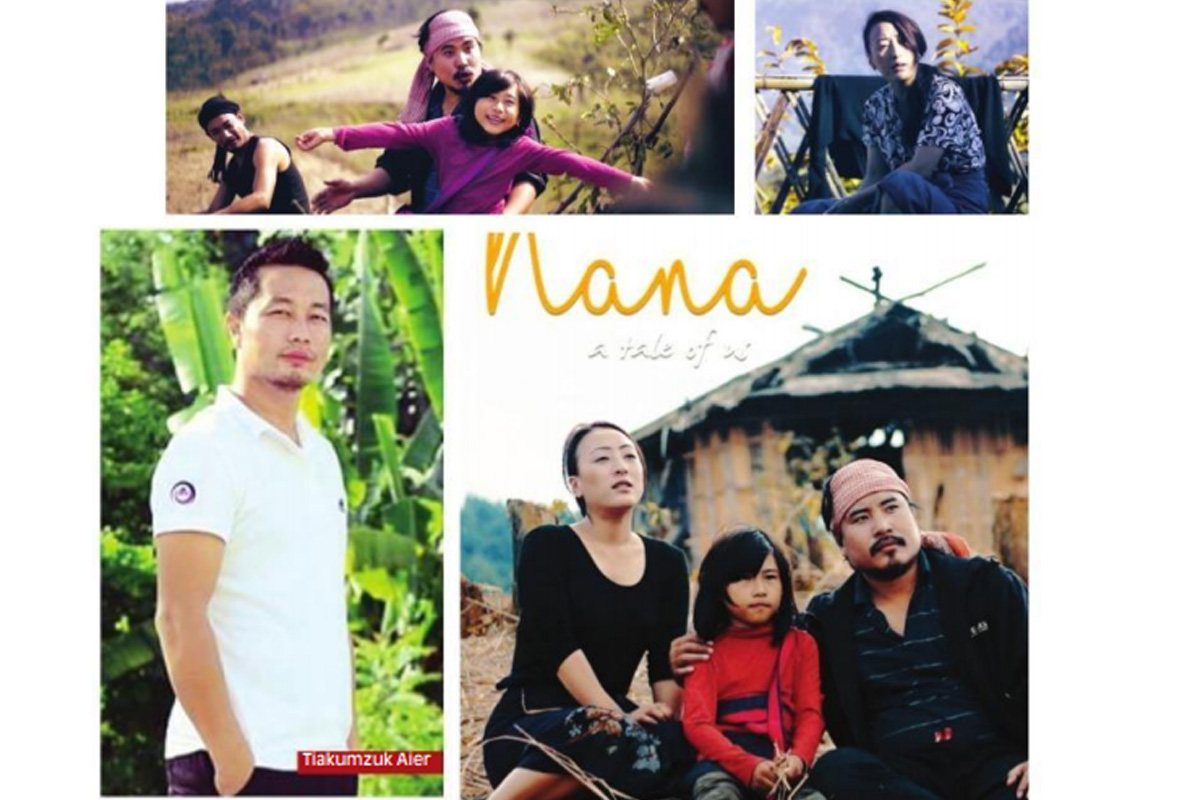Elections in India are rightly called a “festival of democracy”. And the saying rings true in the North-east as well. The goings-on during elections are akin to an open secret with unanswered questions galore but not many raise their voices against the same.
Given this scenario, a brave film from Nagaland called Nana: A Tale of Us has no qualms about talking about elections. The film was recently screened at the seventh edition of the Brahmaputra Valley Film Festival in Guwahati. It is a must-watch, not just for its story or bid to support a “clean election” but also the screenplay and dialogues.
The actors’ performances are excellent as well. Set in the backdrop of elections in India, director Tiakumzuk Aier’s brutally honest Nagamese film takes one through the everyday lives of families, communities, professionals and individuals, including children in Nagaland, and shows how everyone is either directly or indirectly impacted by the elections.
An hour and 40 minutes long, the story revolves around a typical, traditional Naga family in an idyllic town in rural Nagaland and juxtaposes that with the high voltage elections that come and go every five years.
Aier’s film boldly exhibits the dark side of elections, which is otherwise kept within the confines of one’s consciousness. Things that are not talked about, but are common knowledge, is addressed in the film. It effectively portrays how elections and its politics impact the lives of almost every common Indian, both in rural and urban areas.
Produced by the company Dreamz Unlimited, the film was released just before the 2018 Nagaland Assembly election. In the years leading up to the state election, civil society groups, eminent individuals, activists and youngsters under the initiative of the Nagaland Baptist Church Council started a campaign for “clean elections”.
It was extensively advocated across Nagaland. Nana: A Tale of Us sets its plot with that election campaign in the background. It is a relevant and a contextual story, which is weaved around Nana, the child protagonist, and her parents. Nana’s father and his friend, who are both unemployed, come up with an idea to make hay while the sun shines.
They decide that they must make the most of the elections as money pours in like water.
They believe that whatever may be the cost, there couldn’t be a better opportunity to make their lives better. And it does make their lives better as they have cash and power. They influence, threaten, intimidate and buy voters to force their candidate to be elected.
There is no stopping them as they go from distributing cash for votes and booth capturing to silencing people’s voice for a free and fair election. They use any method necessary — guns, money or intimidation — to silence opposition. Their rampage only comes to an end with Nana’s illness and subsequent death. As the lifeless body is brought to her father, he and his friend get down on their knees to ask for forgiveness from the village school teacher, who took Nana to the local hospital.
They are forced to face reality when they realise they had shot the school teacher’s father when he was out advocating for a clean election. The film does not dwell on one main character or narrate a single storyline but portrays a whole set of intertwined lives in a small town.
The story addresses the comprehensive lack of development, infrastructure, medical facilities, water supply and rampant unemployment in Nagaland.
In one scene a young doctor honestly says that he would leave the state for a better job opportunity. In the North-east, elections are literally a festival, replete with booze, cash and violence.
For many people, elections mean business. Reportedly in Nagaland, on an average, election expenditures are estimated to roughly range from Rs five crore in a rural areas to Rs 20 crore and above in urban centres.
YouthNet, an organisation in the state capital Kohima, estimated that an amount of Rs 937.82 crore was spent in the 2018 Assembly election in Nagaland.
The amount goes higher with every election. Even as violence was reported to be higher in 2018 and expenditure increased, that election was said to have been “different” in terms of lesser cash for votes. Perhaps that was the reason why expenditure had gone up and violence increased — they were attempts to woe or influence voters.
The impact of the clean election campaign could be felt in terms of the response to Nana: A Tale of Us as well. The general perception was that the film could face adverse reactions but that did not happen. Aier says that there has been no negative reaction against him personally or the film, which is some indication of its positive impact.
Nagas are slowly but surely accepting harsh truths and making attempts to change. At the screening in Guwahati, viewers were visibly touched and enthralled. Nana: A Tale of Us is a contemporary subject that every person in India can connect with, particularly the present generation. It is a rare film that is socially relevant, unlike the popular fare that is dished out. The writer is a freelance journalist based in Imphal and Dimapur.












